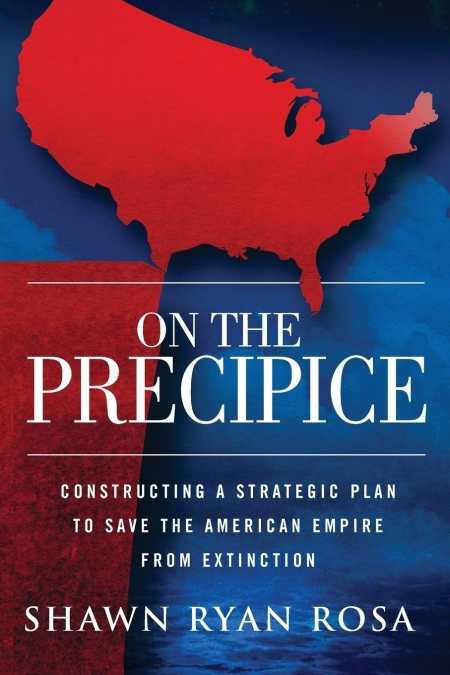On the Precipice
Constructing a Strategic Plan to Save the American Empire from Extinction
This conservative author has refreshing, pull-no-punches ideas on what’s gone wrong with America.
Shawn Ryan Rosa has written a thought-provoking and highly personal manifesto that advocates for conservative values and a return to “pre-LBJ” life as a solution to America’s economic and social ills.
Readers of this work first receive a comprehensive and clear outline of US history. Rosa also gives every president from 1964 onward a grade. This “pull no punches” section alone is worth the price of the book as it is highly readable, with no POTUS (whether right- or left-leaning) getting a free pass.
Yearning for the good ol’ days is often seen as a feel-good exercise in nostalgia. Yet On the Precipice cannot be dismissed as yet another hackneyed rallying call to return America to the way things used to be. Overall, the book advocates seriously for “pre-Great Society” conservatism, but occasionally the author doesn’t follow through with details of his proposals—especially when they start to get more specific or controversial.
Rosa’s style is refreshingly free of the hectoring tone that plagues a good portion of conservative political discourse. Although a die-hard advocate of capitalism and its role as an engine for progress, he is genuinely offended by the exploitative shenanigans that have indelibly associated free enterprise in the public mind with the most despicable acts of crony-istic greed and thuggish skullduggery.
For Rosa, there should be no true reliance on capitalism as the primary wealth and jobs generator without a widespread and wholehearted embrace of civic virtue—something he feels is now almost completely lacking from our corporations, public institutions, and collective individual behaviors. While not doubting his genuine horror at rapacious contemporary transgressions, he seems to hold a slightly exaggerated view of how upstanding Americans (or any other nationality for that matter) were in the past.
The author concludes the book by pinning his ninety-five theses on America’s front door—brazenly ringing our doorbells to see if any of us are at home, or paying any attention to the issues at hand. His theses certainly don’t blindly adhere to any predictable formulaic party line: deep-sea oil drilling in US waters—absolutely, positively against; abolition of social security—an immediate, non-negotiable necessity; open access to abortion—for; gay marriage—neither in favor of its implementation nor in favor of its current prominent place in the public discourse.
The main failing of this book is that the author “runs out of time” when discussing precisely how he might enact his proposals and what the possible pitfalls and setbacks might be. We also get little sense of what he might be able to horse-trade or give way on—surely an indispensable (albeit unfortunate) part of political reality, whatever one’s ideological stripes and personal sincerity.
Rosa’s diverse theses will make most readers question where they stand on a whole host of issues, and for this civic and educational purpose alone, On the Precipice is worth reading.
Reviewed by
Seamus Mullarkey
Disclosure: This article is not an endorsement, but a review. The publisher of this book provided free copies of the book and paid a small fee to have their book reviewed by a professional reviewer. Foreword Reviews and Clarion Reviews make no guarantee that the publisher will receive a positive review. Foreword Magazine, Inc. is disclosing this in accordance with the Federal Trade Commission’s 16 CFR, Part 255.

